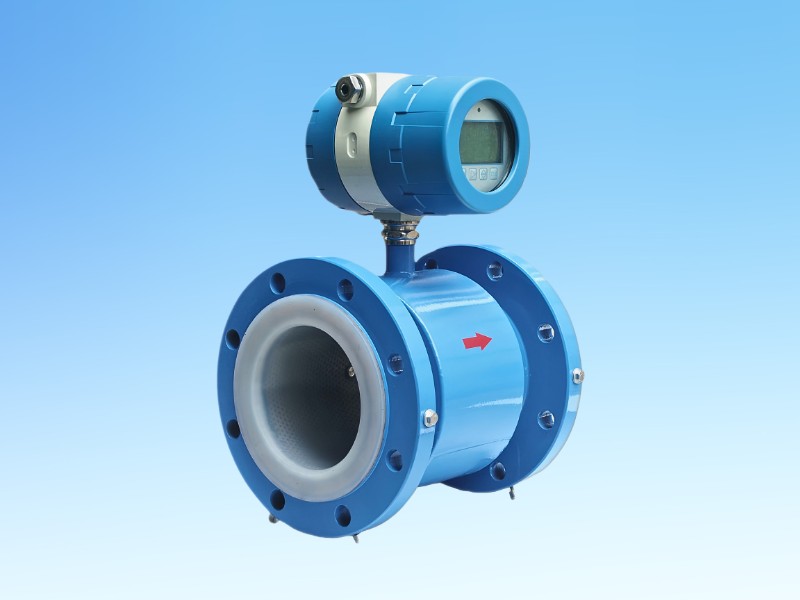An electromagnetic flowmeter is a device used to measure the flow of conductive liquids.
Unlike traditional flowmeters, electromagnetic flowmeters operate based on Faraday's law of electromagnetic induction and measure the flow of conductive fluids based on the electromotive force generated when the conductive fluid passes through an external magnetic field.
The structure of an electromagnetic flowmeter mainly consists of a magnetic circuit system, a measuring conduit, electrodes, a housing, a lining, and a converter.

How does it work?
1. Magnetic field generation
When the flowmeter is used, the electromagnetic coil generates a magnetic field perpendicular to the direction of liquid flow. This magnetic field is stable and uniform, ensuring consistent measurement results.
2. Voltage induction
When a conductive liquid flows through a magnetic field, it crosses the magnetic field lines. According to Faraday's law, this movement induces a voltage in the liquid. The magnitude of this voltage is proportional to the flow rate of the liquid.
3. Voltage detection
Electrodes embedded in the flow tube detect the induced voltage. The location of the electrodes is critical; they are usually placed at the top and bottom of the flow tube to ensure accurate readings regardless of the flow curve.
4. Signal processing
The detected voltage signal is sent to the transmitter, which processes the information. The transmitter converts the voltage into a flow measurement, usually displayed in units such as liters per minute (L/min) or gallons per minute (GPM).
5. Output:
Finally, the flow data can be displayed on a screen, recorded for future analysis, or transmitted to a control system for real-time monitoring and control.
Advantages of electromagnetic flowmeter
The advantages of electromagnetic flowmeters mainly include high-precision measurement, no pressure loss, wide range ratio, strong corrosion resistance, wide application range, sensitive response, easy installation, digital signal processing, strong anti-interference, etc.
Application of electromagnetic flowmeter
● Water and wastewater treatment: Monitor treatment plant flow to ensure compliance with environmental regulations.
● Chemical processing: Measure the flow of corrosive or viscous liquids in chemical manufacturing.
● Food and beverage industry: Ensure accurate measurement of the flow of liquids such as juice, milk, and sauce, which is critical for quality control.
● Pharmaceutical: Monitor the flow of active ingredients and solvents in the pharmaceutical process.
We also provide grounding electrodes (grounding rings) for use in situations where electromagnetic flowmeters require current guidance, elimination of interference, and ensuring the integrity of the signal loop.
Post time: Oct-16-2024
